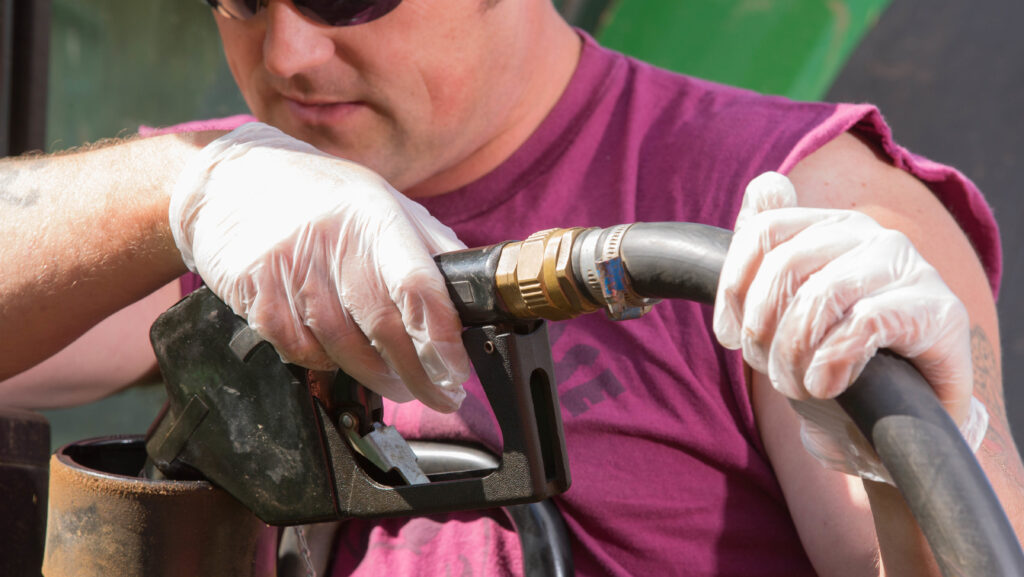Farmers urged to stock up with fuel ahead of budget
 © Tim Scrivener
© Tim Scrivener Fuel merchants have advised farming businesses to fill up fuel tanks ahead of the Autumn Budget on 30 October, in case of any increases in duty.
Duty on fuel has been frozen since 2011; however, the current cash-strapped government has yet to rule out an increase later this month as part of the Budget.
Yorkshire-based fuel distributor Craggs Energy has warned of a “much-anticipated” rise in fuel duty of up to 10p/litre.
See also: Red diesel prices fall to lowest level in three years
Matthew Crockett, managing director of Craggs Energy, said: “Businesses that order early will be able to avoid what we expect to be a painful uplift in fuel duty, and the potential for last-minute panic buying, which could see many paying more for their fuel than they need to.
“The key is to ensure that deliveries arrive before midnight on 30 October, after which they will be subject to any fuel duty increase announced in the Budget.
“To do that with certainty businesses will need to plan ahead and order early.”
Hit hard
There is a concern that rural dwellers, where vehicle usage is most essential, will be hit hardest by any increase in fuel duty, as well as farming and commercial businesses.
Unleaded petrol at UK fuel stations averaged 134.7p/litre on 17 October, while diesel averaged 139.6p/litre.
Red diesel prices collected by Farmers Weekly on 16 October averaged 66.7p/litre based on a 5,000 litre order delivered, remaining relatively low compared with the high prices of the past two years.
Mr Crockett added that a 10p/litre increase in fuel duty would cost large farming businesses hundreds or even thousands of pounds.
He said: “Some of our larger customers, who typically order 18,000 litres of fuel, would see a £1,800 increase on orders arriving after midnight on 30 October.”
Duty freeze
The AA (Automobile Association) has called on government to continue to freeze fuel duty.
Edmund King, president of the AA, said: “We don’t deny there are tough choices for the chancellor to make in October, but hiking fuel duty could backfire on working people and fuel inflation.
“The recent National Travel Survey shows that outside of London, 70% commute by car to work and this increases to 81% in rural areas.
“The car remains an essential form of mobility and affordable road transport is essential to the health of the nation.”
